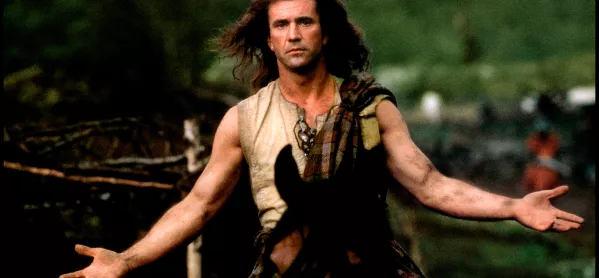As pupils across Scotland sit their history exams today, a new survey suggests that half of 16- to 24-year-olds do not know that William Wallace defeated the English army at the Battle of Stirling Bridge in 1297.
In the survey - which involved more than 1,000 participants of all ages and was carried out by Censuswide Scotland on behalf of the Edinburgh Dungeon tourist attraction - one in six Scots aged 16-24 said they did not learn any Scottish history at school.
Overall, 82 per cent of participants agreed that more Scottish history should be taught, while four in five said it should be taught in a more engaging and interactive way.
More than a third of the respondents said they learned more about history from films, such as Mary Queen of Scots, which was released last year.
Background: Subject choice in schools to be reviewed by MSPs
Quick read: Subject choice has narrowed, say teachers
Opinion: Why studying history should be an imperative
The survey comes in the wake of concerns that the curriculum in Scottish schools is narrowing and fears that subjects like history, geography and languages are being squeezed out because most schools offer just six subjects in S4.
Young people ‘don’t learn Scottish history in school’
The survey probed young Scots’ awareness of key events and characters, with one of the questions asking respondents to match famous figures with historical facts. The report found that three-quarters of Scots could correctly match Mary to the fact that she was imprisoned for 19 years before being beheaded in 1587.
However, despite the recent Netflix blockbuster Outlaw King - the historical drama about Robert the Bruce - many survey participants struggled to name which battle he won: just over half of the young Scots (53 per cent) aged 16-24 did not know that Robert the Bruce led the Scots to victory against the English at the Battle of Bannockburn.
The survey also looked at where young people got their knowledge of Scottish history from. Three in five respondents of all ages said they learned about it from television. Ironically, though, when asked who invented the television, only 14 per cent knew it was Helensburgh-born engineer, John Logie Baird.
On Saturday, an educationalist in England argued in an article on the Tes website that “historical education shouldn’t just be an ‘entitlement’, it should be an imperative”. However it was, he said, “deemed discretionary and therefore dispensable” beyond the age of 14.
In Scotland, there have been concerns that subjects such as history, geography and languages are being squeezed out at too early a stage.




